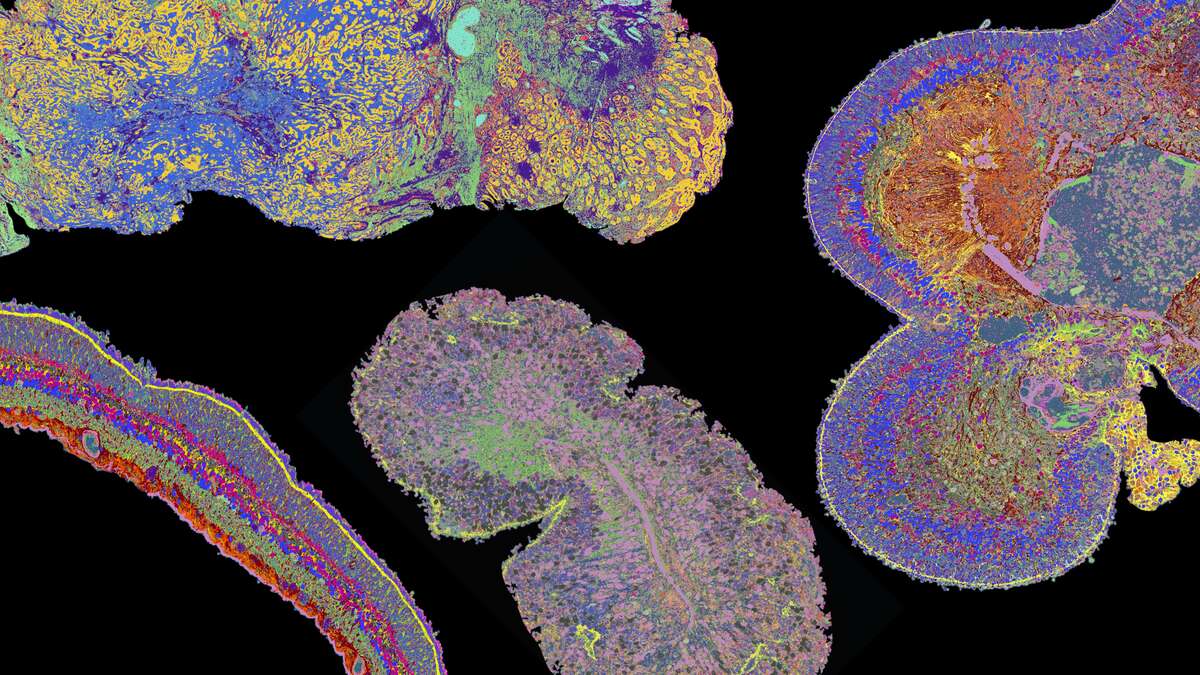Main Content
Evolution of human development
We study uniquely human biology using quantitative stem cell technologies and species comparisons.

Visualization of multiplexed immunohistochemistry of human tissues and organoids
Our body's diverse cell types, shaped by evolution, development, and the environment, create the foundation for health and disease. It is possible to recapitulate aspects of human cell, tissue, and organ biology in vitro from stem cells, providing inroads to understanding the human condition.
Exploring the evolution of human development
Broadly, we study how cell fates and states are established during organ formation, how diverse cells organize in complex microenvironments, how disruptions lead to disease, and how to reconstitute these processes. Our primary interest is to understand how human organs differ from those of other species, and how human evolution has led to disease susceptibilities. Currently, we focus on the development and disorders of the central nervous system and gastrointestinal tract.
Human Model Systems
We establish organoid and tissue models by incorporating epithelial, stromal, neuronal, and immune components into bioengineered systems with physiologically-relevant multicellular interactions. We specialize in high-information content, single-cell genomic and imaging technologies to explore and compare these interactions. We use in vitro models for humans and other species, to study human-specificity across molecular, cellular, and tissue scales.
Recent evolution impacts human traits and disease
Our research has direct relevance for human health, as genetic changes influence disease risk. Evolution involves trade-offs that can confer benefits but also create new vulnerabilities. Bioengineering enhanced model systems, and resolving the molecular changes that have led to physiological adaptations and variation among humans, will help us to understand how our bodies are organized and where sources of susceptibility are located, both genetically and anatomically.


